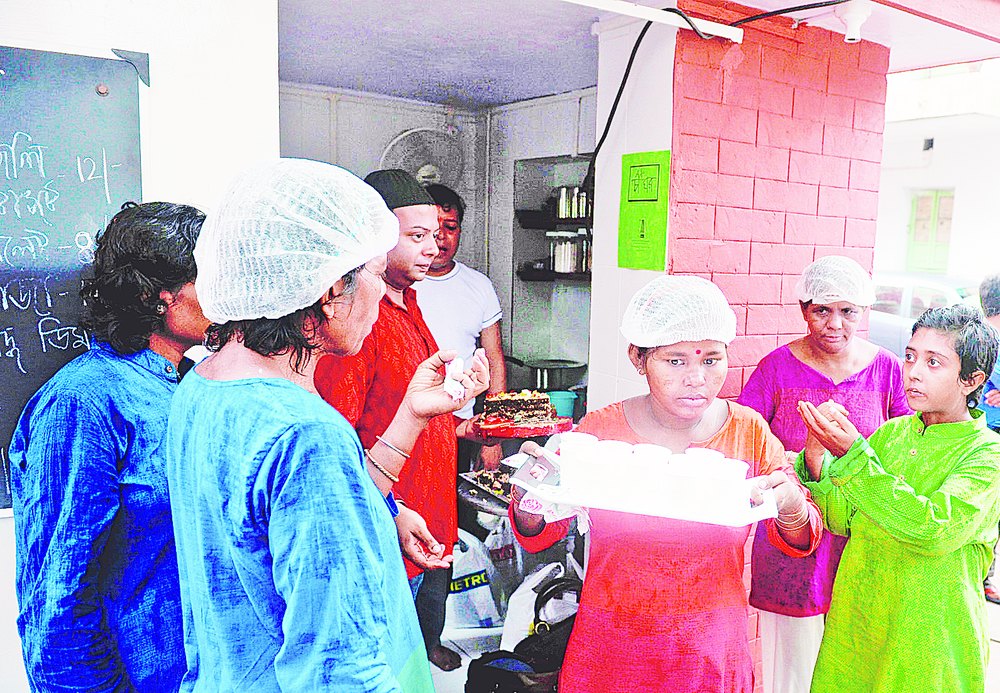
It is a tiny brick structure, painted red and white, with a small patch of landscaped garden fronting it, selling a humble list of items: Dudh cha (tea with milk) - Rs 5, Lal cha (tea without milk - Rs 4, Biscuit - Re 1, Cake - Rs 5, Jelly toast - Rs 12 and Omelette - Rs 8. But the tiny structure houses tall dreams.
Cha Ghar is unlike any other tea shop in the vicinity, or even in the state. Inaugurated on Wednesday afternoon by Shashi Panja, minister in charge of women and child welfare and also the social welfare department, the tea shop has been built on the premises of Pavlov Mental Health Hospital in the city and is being run by inmates of the hospital.
Six women inmates, two of them young girls, their heads covered in tight white caps, are busily serving to the many guests tea in paper cups and also muffins, a special treat only on the first day. They look tired, but entirely happy.
"I have been working very hard since morning. But I am feeling very good. Very good," says Roima Sardar Khatun.
They have been trained from January for work at the shop.
A month ago, the idea of starting a canteen had struck Ratnaboli Ray of Anjali, the mental health rights organisation in the city that has set up Cha Ghar with the department of health and family welfare.
She wanted to do something that would move inmates beyond the idea of conventional rehabilitation, which has its limitations, to active citizenship. Entrepreneur Malavika Banerjee joined hands, contributing both ideas and funds.
A spot on the hospital premises, with a structure in it already, had been identified. Anjali entered into a long discussion with the hospital authorities: the spot was got and the structure rebuilt. Architect Kamal Saha landscaped the area around it, pro bono.
The training itself has changed life enough for the inmates. "We got 12 applications from the hospital. We selected six of the inmates," says Ray.
Mock classes were held. "We taught them the five non-negotiables: no hair in customer's food, nails not to be dirty, undergarments a must, shoes a must and no bad breath," says Ray.
In Pavlov, where lack of infrastructure and resources can make life extremely hard for the inmates, both in the male and female wards, where an outbreak of lice or bedbugs can throw life out of gear, such basic hygiene is a huge achievement.
The helpers will be paid on a daily basis. The canteen is expected to cater to the visitors to the OPD: about 600 to 700 people, patients and their families, come to the hospital every day. It could be a successful business venture.
"We wanted to go beyond the typical rehab model," says Ray. She points at the space: the tea shop stands close to the entry to the hospital. The shop will be supervised by an associate of Anjali, but the "free" world lies just a few feet away, something most inmates don't get to see in their barred lives.
That is the idea behind the tea canteen, says Ray. To free the mind of institutional bars.
Minister Panja, who praised the effort, said she was inspired to do something like this in other homes in the state. "An effort like this will help the inmates live with pride, self-esteem and economic independence," she said.
"It is a very, very positive step," she added.










